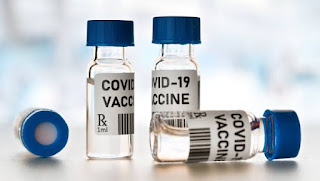Want your Child To Have Sharp Brain? See Best Foods For Kids Brain Growth
As fast as children whiz from classroom to activity to home and back again, their brains are just as rapidly growing and changing.
The foods the kids eat play a vital role. "These years are critical for brain development, and what they eat affects focus and cognitive skills," says psychiatrist Drew Ramsey, MD, co-author of The Happiness Diet and Fifty Shades of Kale.
These 7 foods can help kids stay sharp and impact on the way their brains develop well into the future.
Eggs
The protein and nutrients in eggs can help kids concentrate, says Los Angeles-based chef Beth Saltz, RD
How to prepare It: Fold scrambled eggs into a whole-grain tortilla for a morn -ing breakfast or late-afternoon snack. "The protein-carb combo tides kids over until the next meal with no sugar-induced energy crash," Saltz says. You can also try preparing egg salad sandwiches or a few fried eggs.
Greek Yogurt
Fat is important to brain health, says Laura Lagano, RD. A full-fat Greek yogurt (which has more protein than other yogurts) can help maintain brain cells in good shape for sending and receiving information.
How to prepare It: Pack Greek yogurt in a lunch with some fun mix-ins: cereal with at least 3 grams of fiber, and blueberries for a dose of nutrients known as polyphenols. Dark chocolate chips are another option. They contain polyphenols, too. These nutrients are believed to keep the mind sharp by hiking blood flow to the brain
Greens
Rich in folate and vitamins, spinach and kale are linked to reduce odds of getting deme-
ntia later in life. Kale is a super food, packed with antioxidants and other things that allow new brain cells grow.
How to prpare It: For some kids, greens are a hard sell. So instead of serving a salad, you might try some different ideas:
- Whip spinach or kale into smoothies for snack time.
- Add spinach to omelets or lasagna.
- get kale chips. Cut kale from stems/ribs, drizzle with olive oil and some salt, and bake.
Fish
Fish is a good source of vitamin D and omega-3s, which can keep the brain from declining mental skills and memory loss. Salmon, tuna, and sardines are all high in omega-3s.
"The more omega-3s we can get to the brain, the better it will function and the better kids will be able to focus," says Bonnie Taub-Dix, RD, author of Read It Before You Eat It.
How to prepare It: Grill it and make a sauce for your child to dip in, add fish to tacos, or make tuna sandwiches.
Nuts and Seeds
Loaded with protein, essential fatty acids, vitamins, and minerals, nuts and seeds can boost mood and keep your nerv-ous system in check.
How to prepare It:
- You can serve peanut butter, or you can also buy or make sunflower seed butter. Sunflower seeds are high in folate,vitamin E,and selenium, and safe for nut-free zones. If you can’t make your kids eat the seeds themselves, try the spread on whole-grain crackers or bread.
- You can make pesto: Nuts combined with olive oil and dark leafy greens make a healthy and tasty sauce you may serve over whole-grain pasta.
Oatmeal
Protein- and fiber-rich oatmeal helps maint-
ain heart and brain arteries clear. In one study, kids who ate sweetened oatmeal did better on memory-related school tasks than those who consumed a sugary cereal.
How to prepare It: Add cinnamon. Compounds in the spice could protect brain cells, research shows.
Apples and Plums
Kids usually adore sweets, especially when they're feeling sluggish. Apples and plums are lunchbox-friendly and contain quercetin, an antioxidant that may lower decline in mental skills.
How to Serve It: The good stuff is often in the skin of fruit, so buy organic, wash well, and put the fruit in a bowl for quick snacks


















Comments
Post a Comment